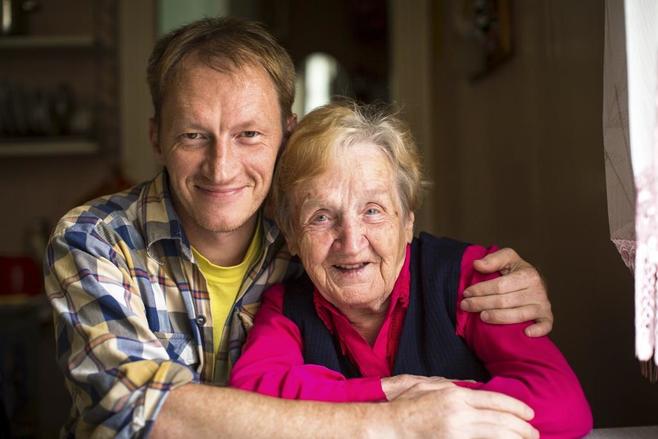Just the immediate organisation of specialist referrals and appointments can feel overwhelming before we even get time to start planning for the months and years ahead:
How can our family adjust to changes in daily life and find the right support at the right time?
- How can I protect my loved one’s financial interests?
- How can I plan for the potential cost of ongoing care?
- How do I become a guardian to protect my loved ones legal rights?
These are important questions to look into early, while your loved one with dementia is able to make decisions as to how they want their affairs taken care of in the future and by whom.
Who can make decisions?
There may come a time when a person with dementia will no longer be able to make life decisions. Families will need to plan ahead for this time and discuss early what will be involved and what the legalities are.
There are two basic types of decisions – those concerning your finances, and those concerning daily life, including medical treatment, where you live and who will be taking care of you.
If at some point you lose the capacity to make these decisions someone else will need to make them for you. While you still have capacity you can select those people yourself, a “Power of Attorney” for your financial decisions and a “Guardian” for your support and daily living decisions.
“Kingsford Legal Centre can provide free legal advice to people with dementia or their family members and carers, if they live in the Randwick and former Botany Bay council areas. Kingsford Legal Centre can advise people with dementia who still have the capacity to make decisions about appointing an Enduring Attorney and an Enduring Guardian to look after their interests when they lose that capacity,” says Natalie Ross, Solicitor and Clinical Supervisor at Kingsford Legal Centre. “We can also advise family members and carers of a person with dementia who can no longer make decisions and needs someone to manage their finances or arrange suitable care, accommodation and medical treatment. You can contact Kingsford Legal Centre on 93859566.”
Finances and assets
Trust is essential when it comes to advocating for your financial interests, but it is important to formalise who has which powers to make decisions on your behalf.
“An important part of the overall plan on how to cope with declining health is addressing financial and estate questions”, says John Corkill, Financial Planner, Bridges Financial Services Pty Limited:
“Do you have your financial assets invested appropriately to suit your needs for the years ahead? If there comes a time when you need more than what home care provides, do I have a preferred care facility that is affordable given my financial means?
“If you and/or your family need help with any of these matters you should seek professional advice whether it be your local bank or credit union, accountant, solicitor or financial adviser. If you are not sure who to contact speak to a trusted source who may be able to refer you to an appropriate professional”, John
explains.
There are many ways to go about planning your finances and some will leave you with more security and options than others.
Help and support along the way
The first weeks and months following diagnosis are hard as families grieve and come to terms with the new challenges and the unknown ahead. But there is help and support.
South Eastern Community Connect offers both flexible in-home carer respite for those looking after a family member with dementia, as well as the Cottage Day Centre for those living with dementia, providing therapy, social interaction and hope for the future.
“The Cottage is a dementia specific day centre that runs from Monday to Friday. When someone is first diagnosed with dementia, they can sometimes continue their usual hobbies and interests,” says Amy Drewe, The Cottage Coordinator.
“If dementia progresses to a level where some extra stimulation and socialisation is required – The Cottage can provide structured activities and companionship for people living with dementia as well as some respite for their carers or loved ones, when applicable.
“To access The Cottage, people have an assessment to evaluate whether the program will be suitable for them. This assessment can be done with a nurse or friend, or a medical professional or community worker.
“Various questions about communication, home life, self care, leisure and hobbies and financial abilities as well as an in depth conversation about past employment and social history help determine whether the prospective client is within the low-
medium range of dementia and how they would fit in with some other like-minded clients.
Families of clients at The Cottage often report a great shift in mood and behaviour after their loved one has attended The Cottage not only on the day, but in their general wellbeing,” Amy says.
More tips to help you prepare

